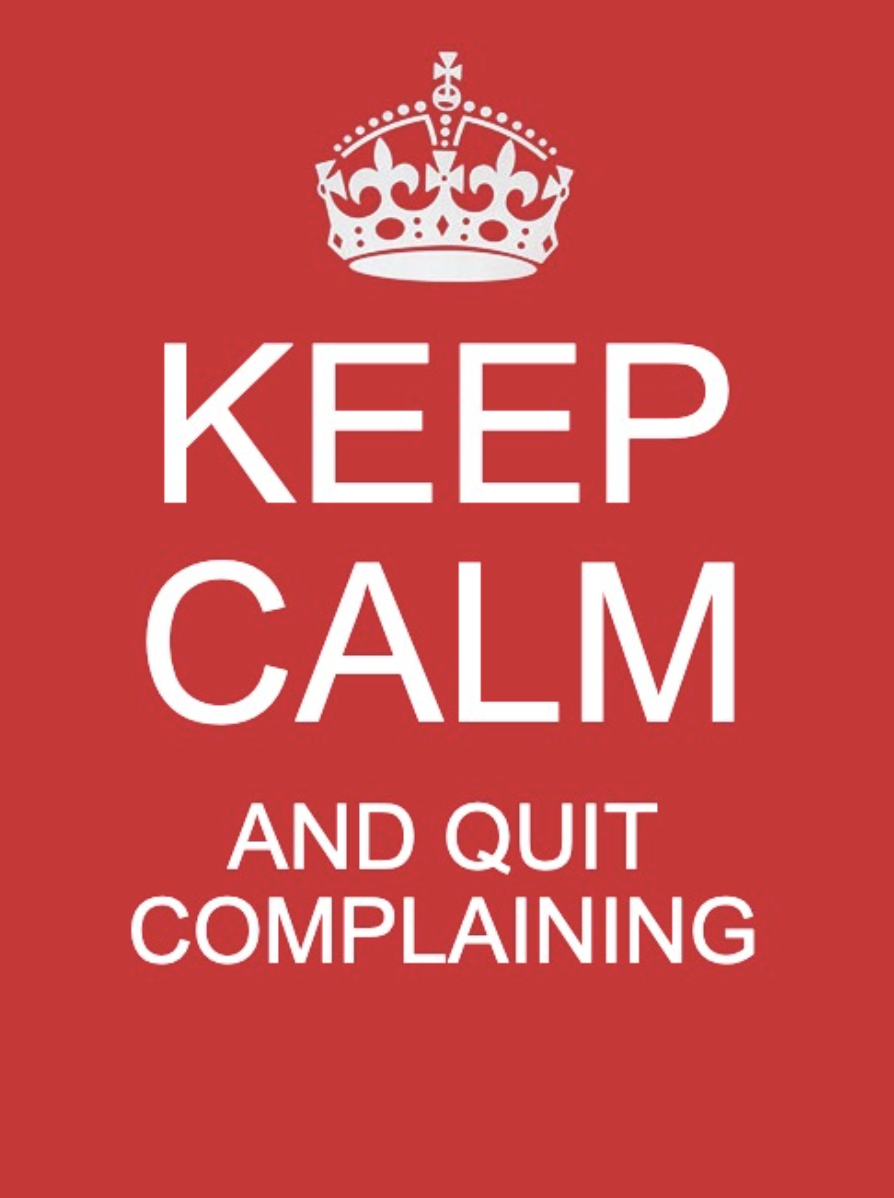In his victory speech Joe Biden said, “put away the harsh rhetoric, and lower the temperature.” He’s right. Let’s be done with grievance and aggravation. Constant complaining cramps the soul and sickens society.
My grandfather put this crudely. He’d often say, “quit your bitchin’.” A poet would say, “Let us not be aggrieved.”
The grievance machine runs on bile. President Trump is complainer-in-chief. He has griped and grumbled for years: from American carnage to a rigged election. Conservative commentators copy his kvetching and complain about the “frauds and liars” in the liberal establishment.
Of course liberals love lambasting Trump. They also lament his popularity. After the election a headline in Politico said, “Democrats look at Trump voters and wonder, ‘What the hell is your problem?’”
All of this complaining causes heartburn. Grievance produces grief. Anger begets animosity. And a small mind gets focused on small things.
There is a time and place for righteous indignation—but it is a narrow place and a limited time. Genuine injustice ought to enrage us. But rage can burn a hole in your heart if it is not transformed into creative activity.
Common sense teaches this. Complaining about being hungry does not fill your stomach. Whining about the wind won’t stop it from blowing. But griping and groaning will certainly make you more miserable.
Ancient wisdom traditions tell us to bear hardship without complaint. They emphasize resilience and teach us to give up grousing. The Stoics recommend taking things as they come without wishing them to be otherwise. The Taoists teach us to stop fussing and fuming by learning to flow with the changes .
The wisdom of patient endurance and going with the flow is obvious. But quiet retreat is not the whole answer. The further lesson is to get to work. We ought to transform resentment into resourceful action. If the wind is blowing, close the window. If you are hungry, cook something.
Scoop Nisker used to say, “if you don’t like the news, go out and make some of your own.” We might add, “if you don’t like what’s happening, then either fix it or shut up.”
Partisanship feeds on outrage. The headlines called this the most important election of our lifetime. The Republicans claimed it was a fight against socialism, anarchist violence, and leftist totalitarianism. The Democrats claim.ed it was a fight against fascism, authoritarianism, and malicious incompetence.
This created historically high voter turnout. But a third of eligible voters didn’t bother to vote. While the partisans are screaming, a third of Americans opted out. Maybe the screaming has turned them off. Some non-voters are ignorant and lazy. But some are sickened by the vitriol of the public sphere.
Grievance is a sales technique. It keeps us glued to our screens. Clever partisans fan the flames of grievance and complaint. But this divides us and closes people’s minds.
Our complainer-in-chief is a master of the dark art of aggravation. His vain boasts and vile complaints are mostly hot air. But his followers love it. His opponents love to hate it. And the viewing public keeps tuning in.
The Trump era is like spicy food. It’s exciting. But it disrupts the digestion. Some people get addicted to the cycle of heat and misery. Others can’t stand the smell it leaves behind.
It’s wise to stop binging on spicy stuff. Most people intuitively understand this. It is difficult to live life permanently aggrieved. Active people have little time for grievance. We have work to do, families to care for, and activities to enjoy.
Of course, there is irony in complaining about complaining. At some point, we just need to stop it.
The world’s traditions teach us how to lower the temperature. Instead of grumbling, be grateful. Instead of complaining, have deep conversations. And instead of pulling your hair out, put your hands to work.


